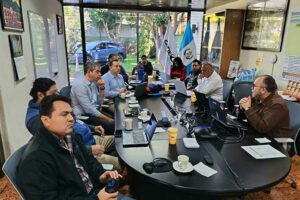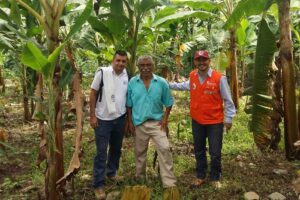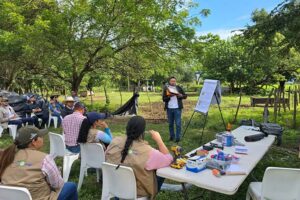Mexican and Costa Rican authorities, together with CATIE experts, exchanged experiences on livestock and biodiversity conservation
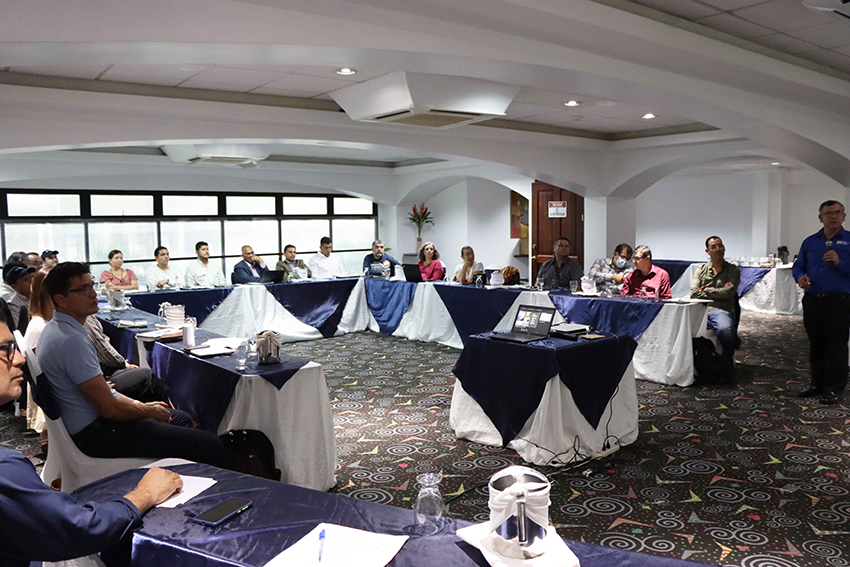
- They seek to identify new joint work actions that will continue to promote sustainable agricultural production in the states of Jalisco, Chiapas and Campeche
August 1, 2022. In Jalisco, Chiapas and Campeche, a consortium of institutions led by CATIE (Tropical Agricultural Research and Higher Education Cente) have been implementing the Biodiversity and Sustainable Agro-silvopastoral Livestock Landscapes project, known as BioPaSOS, for more than four years. Currently, in its closing year, the project seeks to scale up its results so that the three states continue to implement actions aimed at a more sustainable livestock farming that contributes to the conservation of biodiversity. It was with this in mind that a delegation from the Ministries of Agriculture and the Environment of Jalisco, Chiapas and Campeche, accompanied by Arturo Macosay, general coordinator of livestock farming at Mexico's Ministry of Agriculture and Rural Development (AGRICULTURA), visited Costa Rica from July 26 to 27.
Representing Jalisco were Carlos Alberto Jiménez, Director of Production Chains and Sustainability of the Ministry of Agriculture and Rural Development (SADER, its Spanish acronym); Ismael Novoa, Director of Territorial Governance of the Ministry of Environment and Territorial Development (SEMADET, its Spanish acronym); Carmen Gómez, Director of Biological Corridors and Watersheds of SEMADET; and Juan Edduardo Betanzos, local coordinator of BioPaSOS.
The delegation from Chiapas included María del Rosario Bonifaz, head of the Secretariat of Environment and Natural History (SEMAHN, its Spanish acronym); Raúl Antonio Serrano, director of Livestock Regulation of the Subsecretariat of Agriculture and Livestock of the Secretariat of Agriculture, Livestock and Fisheries (SAGyP, its Spanish acronym); Osvaldo Erwing Iturbide, coordinator of Agricultural and Agroindustrial Financing and Commercialization of SAGyP; and José Antonio Jiménez, local coordinator of BioPaSOS.
Attending from the state of Campeche were Sandra Martha Laffon, head of the Secretariat of Environment, Biodiversity, Climate Change and Energy (SEMABICCE, its Spanish acronym); Jocelyn Durán, director of Conservation and Use of Biodiversity of SEMABICCE; Carlos Ernesto Hurtado, director of Livestock of the Secretariat of Agricultural Development (SDA, its Spanish acronym); and Edwin Pérez, local coordinator of BioPaSOS. Yeltsin Hernández, inter-institutional liaison director of AGRICULTURA, was also part of the Mexican delegation.
During their visit, CATIE welcomed them at its headquarters, where they learned about the work of the institution and its value offer in areas such as livestock and environmental management, coffee, cocoa, agro-forestry, food security, sustainable agribusiness, climate change, graduate education and training. They also shared a meeting with the leaders of CATIE's research units, with whom they discussed possible CATIE cooperation in the Mexican states of Jalisco, Chiapas and Campeche.
They also met with representatives of Costa Rican authorities such as Guillermo González, Mauricio Chacón, Luis Felipe Arguedas and Jorge Segura of the Ministry of Agriculture and Livestock (MAG, its Spanish acronym); Luis Diego Obando of the Costa Rican Livestock Development Corporation (CORFOGA, its Spanish acronym); Gilmar Navarrete of the Forestry Financing Fund (FONAFIFO, its Spanish acronym); and Carlos Salazar of the National Chamber of Milk Producers (Proleche).
"The objective of BioPaSOS has been to promote sustainable livestock farming that conserves biodiversity, but we know that with a territorial vision, other aspects that affect land use change are also important, and that is why we wanted to generate this exchange so that Mexican colleagues and authorities could learn about the experiences, challenges and lessons learned in Costa Rica, a country that has made significant progress in this area," said Muhammad Ibrahim, director general of CATIE; He also pointed out that both Mexico and Costa Rica are member countries of the Center, which the institution supports through research, technical assistance and education, and with whom it is interested in strengthening cooperation.
From SADER, Jalisco, Jiménez said that the experience was unique. "Frankly, I had no idea of what I could find here and it has certainly exceeded expectations and I think it also opens the door to look for additional alternatives to what we are already implementing in the territory of Jalisco," he said.
"I really wanted to get to know Costa Rica and CATIE, in general, a country and institution that I believe has focused on quality and that has been its differentiating element," said Bonifaz, head of SEMAHN, Chiapas.
"The experience has been very rich, the knowledge that you have generated has allowed us to understand the results you have achieved and how you are trying to implement them, that they are technological packages that can be used in the real field, with the communities. This opportunity to visit you, to learn about your projects, leaves us with the hope that we can indeed bring these technologies and ways of agricultural production in environmentally friendly systems to Campeche," said Laffon, head of SEMABICCE, Campeche.
The territories of Jalisco, Chiapas and Campeche, where the BioPaSOS project has intervened, share similarities in cattle ranching, deforestation and also in areas of early attention to REDD+, priority areas for the conservation of certain species of fauna, such as the jaguar. In the three states, the project was able to strengthen the capacities of approximately 1,232 livestock producers in topics related to sustainable livestock farming and biodiversity, using the Field School methodology. It also impacted nearly 35,000 hectares with good livestock and agro-forestry practices.
BioPaSOS is implemented by CATIE, with the support of the Inter-American Institute for Cooperation on Agriculture (IICA), in coordination with the National Commission for Knowledge and Use of Biodiversity (CONABIO, its Spanish acronym) and the Ministry of Agriculture and Rural Development (AGRICULTURA), with funding from the International Climate Initiative (IKI) and together with multiple local partners in their territories of intervention.
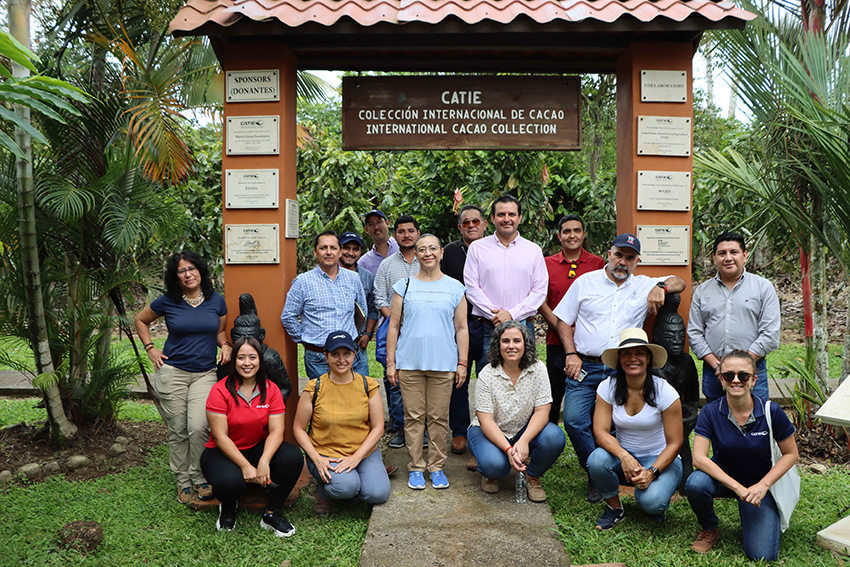
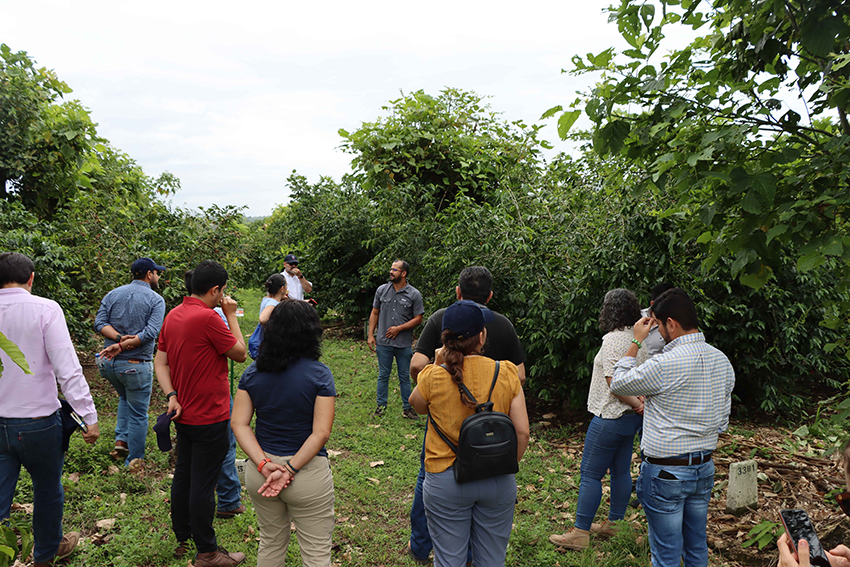
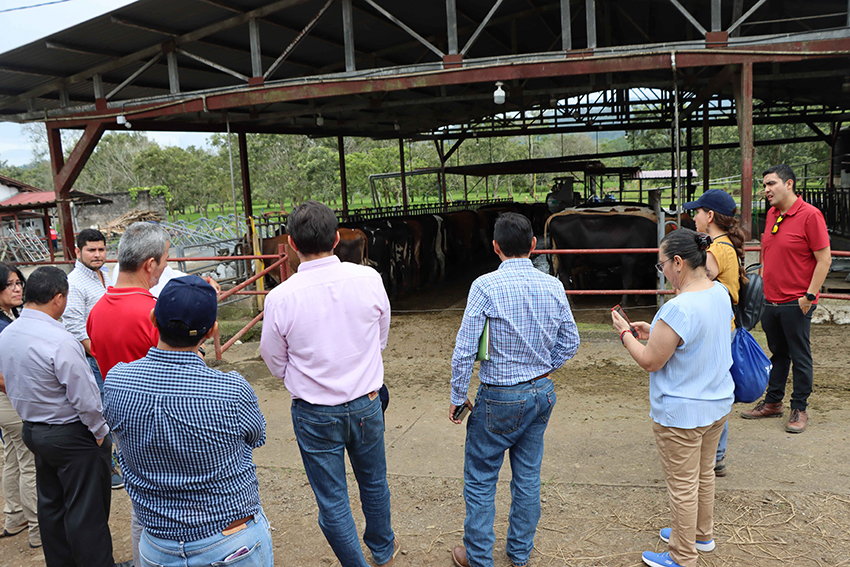
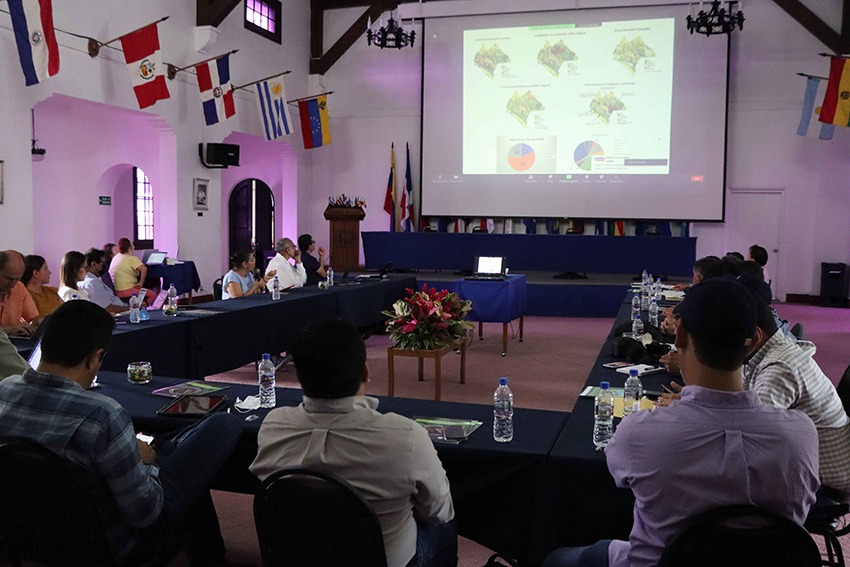
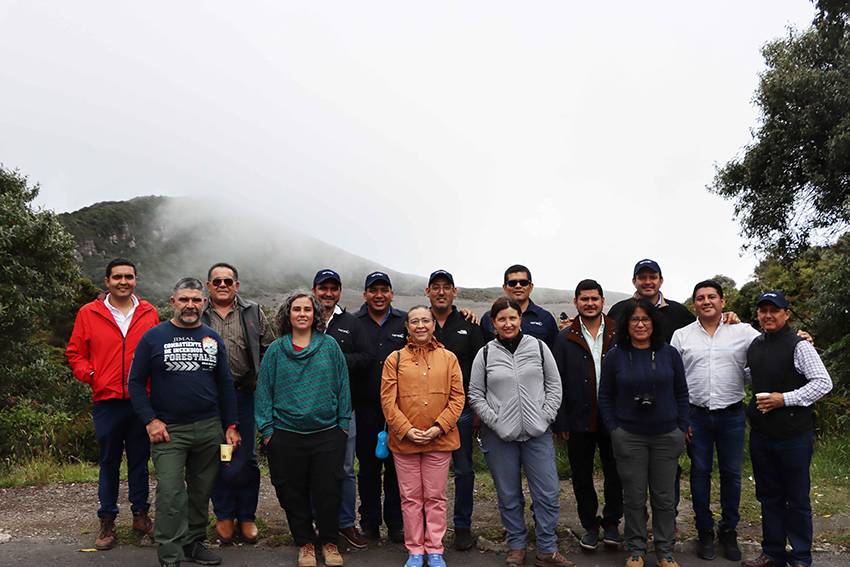
More information:
Juan Edduardo Betanzos-Simon
Local Coordinator of BioPaSOS Project, Jalisco
José Antonio Jiménez Trujillo
Local Coordinator of BioPaSOS Project, Chiapas
Edwin Pérez Sánchez
Local Coordinator of BioPaSOS Project, Campeche
Written by:
Karla Salazar Leiva
Communicator
Information Technology and Communication
CATIE

